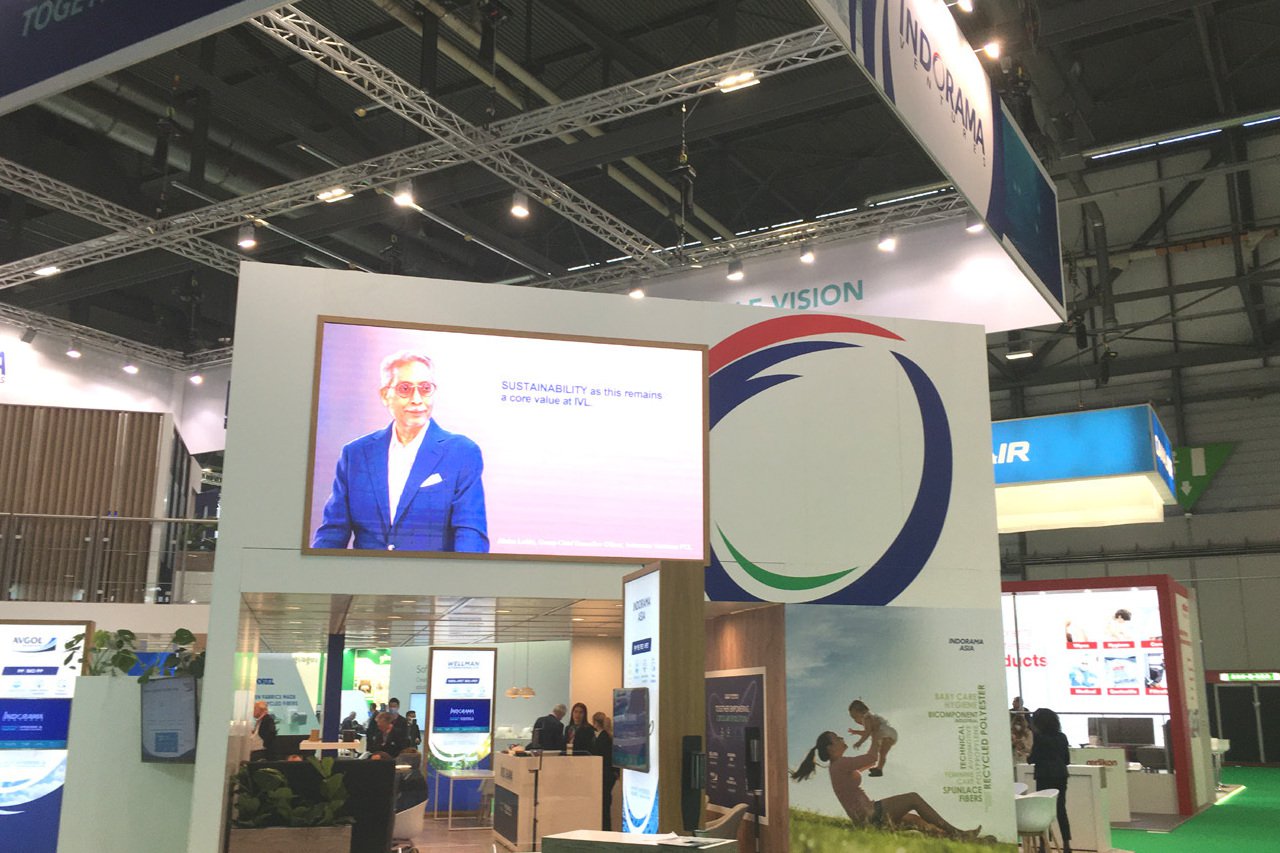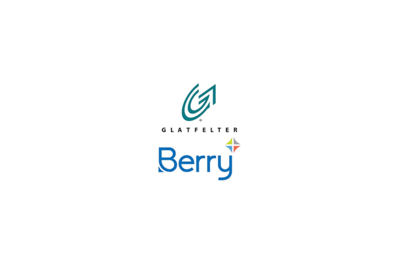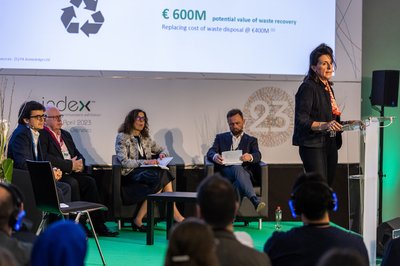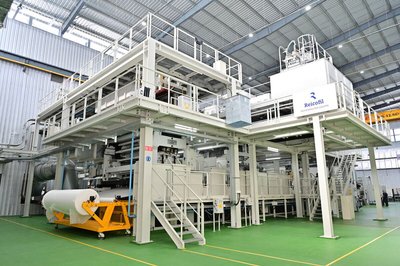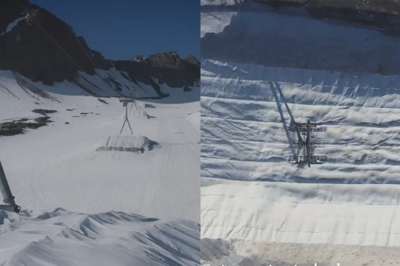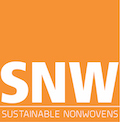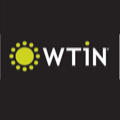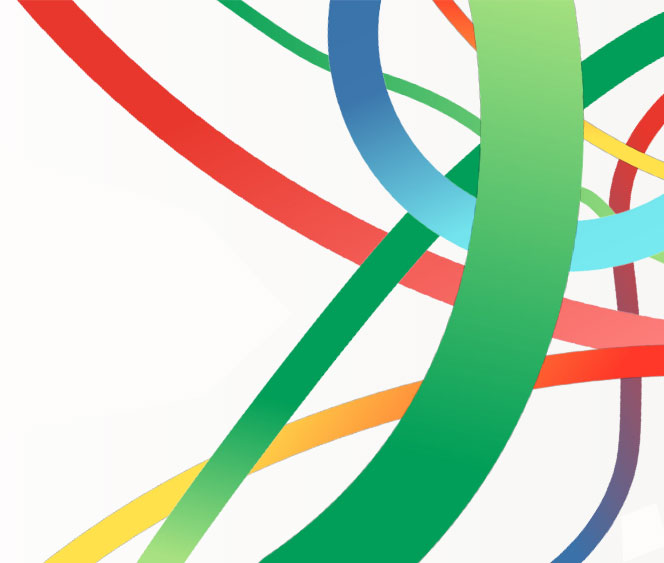
The global nonwovens industry is currently in an exciting phase of its evolution, after playing a substantial role in the global response to the Covid-19 pandemic with its wide portfolio of essential products for personal protection, healthcare and hygiene.
Companies are now looking to meet ambitious sustainability targets and examples of this are everywhere in the build-up to INDEX™23.
Synthetics
Innovation in raw materials for the nonwovens industry is not just confined to natural feedstocks such as wood and other cellulosic crops, but by necessity extends to core synthetic fibres such as polypropylene (PP) and PET polyester.
It should be emphasised that the performance requirements of nonwovens for a number of applications, especially in the areas of medical and hygiene, prevent complete polymer substitution – at least in the short-to medium term. At the same time, the production capacities of bio-plastic alternatives are still extremely limited, representing less than 1% of the 360 million tons of plastics produced worldwide.
It is for these reasons that many complementary initiatives are underway. ExxonMobil, for example, has just completed its first commercial sale of certified circular PP polymers converted by its Exxtend recycling technology to the major nonwovens manufacturer Berry Global.
An advanced recycling facility at ExxonMobil’s integrated site in Baytown, Texas began operations in 2021 and has already processed more than 1.8 million kilograms of plastic waste.
The product quality and performance of the certified circular polymers is said to be identical to polymers produced from virgin raw materials, increasing the variety and number of customer applications.
The operation in Baytown will be among North America’s largest advanced plastic waste recycling facilities with a capacity to recycle 30,000 metric tons per year when its expansion is complete later this year. To help meet the growing market demand for certified circular plastics, ExxonMobil plans to increase its annual advanced recycling capacity across multiple sites globally to 500,000 tons by 2026.
The company has already obtained certifications through the International Sustainability and Carbon Certification Plus (ISCC PLUS) process for several of its facilities, including Baytown.
Hydroentangled
In other INDEX™ exhibitor news, Denmark’s FiberPartner has been running trials with the new PrimaLoft Bio PET polyester fibre at the Andritz Perfojet spunlacing pilot line in Montbonnot, France.
While its high durability means it’s built to last, the ability of PrimaLoft Bio PET to return to natural elements in marine, wastewater and landfill environments directly combats microplastic pollution. The fibre can also be chemically recycled again and again, while maintaining the same high performance.
The use of 100% recycled material in initial production also saves up to 70% of the carbon emissions used in the production of virgin PET.
Andritz has successfully produced 35-50gsm nonwoven carded and hydroentangled fabrics with 100% PrimaLoft Bio fibre, confirming its eminent suitability as a replacement for standard PET in applications such as wipes.
Other Solutions
An extensive range of recycled and biodegradable fibre solutions for nonwovens is meanwhile being developed by the Hygiene Fibers group of Indorama Ventures (IVL), which has announced a $1.5 billion investment programme in new sustainable innovation.
The combination of polymers, technologies, processes, and global reach of the IVL Hygiene Fibers group uniquely positions it within the hygiene industry to meet the increasingly challenging market demand for sustainable solutions.
CiCLO, for example, is a new IVL technology which also allows PET to biodegrade like natural materials do in wastewater treatment plant sludge, sea water and landfill conditions, reducing synthetic microfibre pollution generated during washing, and minimising plastic accumulation in landfills caused by discarded textiles.
Several IVL Hygiene Fibers brands, including Wellman, Trevira and Auriga, have been working closely with the CiCLO technology, with a focus on sustainable PET and rPET staple fibre and filament solutions in areas where recycling is particularly challenging, such as hygiene, home textiles and automotive applications.
IVL’s ambitious programme is just one of many initiatives that are now underway and will lead to nothing less than a planet-positive transformation of the nonwovens industry.
Cellulosics
At the same time, there will soon be a growing availability of cellulosic feedstocks and already in 2022 to date, INDEX™ exhibitor Lenzing has announced the opening of a new €400 million lyocell plant in Thailand.
The new plant – the largest of its kind in the world with a nameplate capacity of 100,000 tons per year – has started production on schedule and will help to better meet the increasing customer demand for Tencel branded lyocell fibres.
Responsible
The lyocell production process is the most modern and environmentally responsible method for producing fibres from wood and has been successfully applied on an industrial scale for about 30 years.
Together with a key project in Brazil and the substantial investments at existing sites in Asia, Lenzing is currently implementing the largest expansion programme in its corporate history with investments of more than €1.5 billion.
The industry’s forward momentum, already evident in 2022, makes registration for INDEX™23 a must!

